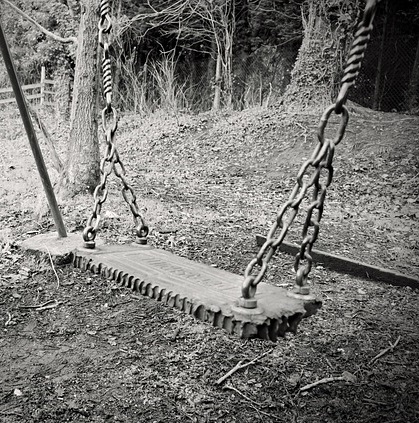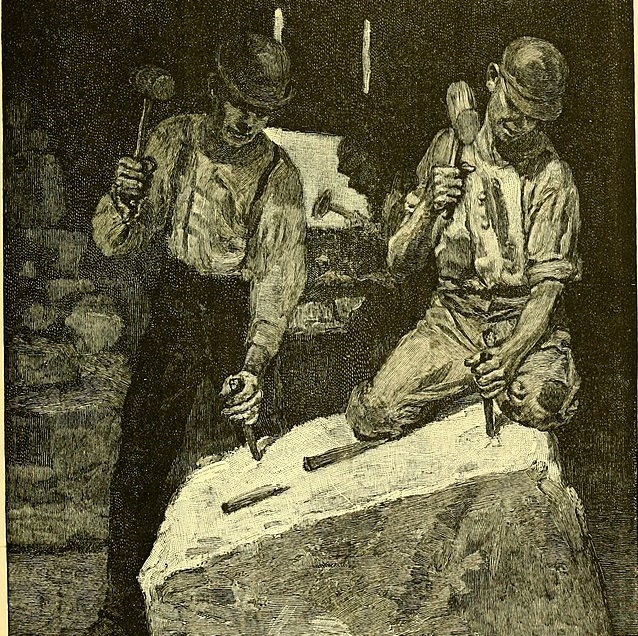
by Richard Subber | Oct 4, 2021 | Human Nature, Reflections, Tidbits
it takes smarts to deal with change…
“It is a law of nature we overlook, that intellectual versatility
is the compensation for change, danger and trouble.
An animal perfectly in harmony with its environment
is a perfect mechanism.
Nature never appeals to intelligence
until habit and instinct are useless.
There is no intelligence where there is no change
and no need of change.
Only those animals partake of intelligence
that have to meet a huge variety of needs and dangers.”
Spoken by the Time Traveler in The Time Machine
by Herbert George (H. G.) Wells (1866-1946
New York: Penguin Books, 1895 (repr. 2005)
pp. 78-79
I notice that there is no mention of love and joy and imagination.
I notice that contented animals don’t write poems.
* * * * * *
Copyright © Richard Carl Subber 2021 All rights reserved.
–
My first name was rain: A dreamery of poems with 53 free verse and haiku poems,
and the rest of my poetry books are for sale on Amazon (paperback and Kindle)
and free in Kindle Unlimited, search Amazon for “Richard Carl Subber”
* * * * * *

by Richard Subber | Oct 3, 2021 | Human Nature, My poetry, Poetry
A haiku poem for your inner child…
It doesn’t hurt to admit the truth about thinking—thinking doesn’t always have to be hard work.
The teeter-totter and the carousel and the monkey bars build strong bodies, sure, and they offer a workout for the old brain…try using them, and throw in the sandbox and the swing, too, the next time you’re thinking about what the heck is going on in the real world…
Let some of the innocence of a child into your thoughts.
Inner child
Callow thoughts scamper
in the playground of my mind,
there, whence wisdom comes.
December 2, 2015
My haiku poem “Inner child” was published in my third collection of 64 poems, In other words: Poems for your eyes and ears. You can buy it on Amazon (paperback and Kindle), or get it free in Kindle Unlimited, search for “Richard Carl Subber”
* * * * * *
My poetry. Copyright © Richard Carl Subber 2021 All rights reserved.
–
Old Friends (book review)
Tracy Kidder tells truth about old age…
–
My first name was rain: A dreamery of poems with 53 free verse and haiku poems,
and the rest of my poetry books are for sale on Amazon (paperback and Kindle)
and free in Kindle Unlimited, search Amazon for “Richard Carl Subber”
* * * * * *

by Richard Subber | Jul 30, 2021 | Book reviews, Books, Human Nature, Reflections
Learn to think about being old…
Book review:
Old Friends
by Tracy Kidder (b1945)
Boston, Houghton Mifflin Company, 1993
352 pages
Tracy Kidder is an old friend, and I welcome any opportunity to read something he wrote. There is vigor and bitter reality and calm truth and pulsing delight in his stories.
Whatever your age, try Old Friends. You’re going to be someone’s old friend, sooner or later. You can learn to think about how it’s going to be.
Like Kidder’s other books, Old Friends is in its own category. Nevertheless, it has themes you’ll find in his other books. It contains some kinds of the loneliness expressed in Strength in What Remains (2009), and it echoes some of the humanity that pervades Among Schoolchildren (1989).
You’ll be surprised as you get to know Lou and Joe and the others.
They’re like people you already know, and like real people you’re going to get to know.
* * * * * *
Book review. Copyright © Richard Carl Subber 2021 All rights reserved.
Mary Jane Oliver, R. I. P.
She wrote so many of the right words…
–
As with another eye: Poems of exactitude with 55 free verse and haiku poems,
and the rest of my poetry books are for sale on Amazon (paperback and Kindle)
and free in Kindle Unlimited, search Amazon for “Richard Carl Subber”
* * * * * *

by Richard Subber | Jun 5, 2021 | American history, Book reviews, Books, History, Human Nature, Politics
…the Irish weren’t the only ones…
Book review:
How the Irish Became White
by Noel Ignatiev (1940-2019)
American author and historian
New York: Routledge, 1995
Ignatiev offers enough detail and context to satisfy historians of every stripe.
For the less ambitious reader, there may be a bit more than she cares to know in How the Irish Became White.
Of course, I certainly don’t presume to summarize the author’s careful exposition in 233 pages.
If you really want to know more about how non-black immigrants allowed and persuaded themselves to buy in to the systemic racism that flourished in America since the 17th century, dig in to How the Irish Became White.
One sure point is: don’t pick on the Irish exclusively. They certainly weren’t alone in their transgressions.
* * * * * *
Book review. Copyright © Richard Carl Subber 2021 All rights reserved.
We Were Soldiers Once…and Young
…way too much death (book review)
Lt. Gen. Harold G. Moore (ret.)
and Joseph L. Galloway
–
Above all: Poems of dawn and more with 73 free verse poems,
and the rest of my poetry books are for sale on Amazon (paperback and Kindle)
and free in Kindle Unlimited, search Amazon for “Richard Carl Subber”
* * * * * *

by Richard Subber | Jan 19, 2021 | Human Nature, Theater and play reviews
a first-class bad guy…
Movie review:
The Wind and the Lion (1975)
Candice Bergen as Mrs. Eden Pedecaris.
Sean Connery as Mulay Achmed Mohammed el-Raisuli, Lord of the Rif and Sultan to the Berbers.
In real life he was Mulai Ahmed er Raisuni (Raisuli) (1871-1925), a Sherif and Lord of the Rif in Morocco, a tribal leader and brigand, “the last of the Barbary pirates.”
The Wind and the Lion is a dramatic interpretation of a real incident in Morocco in 1904. The real Raisuli kidnapped an American, Ion “Jon” Hanford Perdicaris (1840-1925) and his stepson, and held the two for ransom. President Teddy Roosevelt sent U. S. marines to rescue the men. Ultimately, the government of Morocco paid the ransom and the men were released.
The movie is wonderfully dashing, and the brutal details are romantically minimized. The captive American, Candice Bergen, doesn’t quite fall in love with Sean Connery, but it seems to be a close call.
Connery, with all of his moustaches and flowing robes, is a first class bad-guy hero, and he has a good heart. He’s happy to get his money, but he’s sorry to say goodbye to Mrs. Pedecaris.
In the final scene, the Raisuli and his lieutenant, the Sherif of Wazan, are silhouetted on a high beach against the setting sun, and the Sherif plaintively declares “Great Raisuli, we have lost everything. All is drifting on the wind as you said. We have lost everything.”
Raisuli revives the heart throbs: “Sherif, is there not one thing in your life that is worth losing everything for?”
* * * * * *
Movie review. Copyright © Richard Carl Subber 2021 All rights reserved.
Book review: The Proud Tower
…a lot more than a history book…
by Barbara Tuchman
–
Seeing far: Selected poems with 47 free verse and haiku poems,
and the rest of my poetry books are for sale on Amazon (paperback and Kindle)
and free in Kindle Unlimited, search Amazon for “Richard Carl Subber”
* * * * * *

by Richard Subber | Jan 4, 2021 | Book reviews, Books, Human Nature
…a little more time in childhood…
Book review:
Girl With A Pearl Earring
by Tracy Chevalier
New York: PLUME, The Penguin Group, 1999
Girl with a Pearl Earring is a slim offering of compelling historical fiction about Johannes Vermeer’s enigmatic portrait of an unknown young girl, circa 1665.
It’s a breathtaking, tantalizing love story…tantalizing because Vermeer and the maid, Griet, almost embrace their passion, each stepping over the line without transgression, but not without hurt.
Vermeer, the worldly one, the master in a house filled with the baleful women of his family, tempted to the edge of the precipice…
Griet, the child innocent, heedless of her woman’s heat, trespassing unaware and ever nearer to the mystery that she barely understands in the beginning…
She becomes the girl with a pearl earring. She feels the lush weight of the earring, his fingertip sears her skin, she inclines toward his touch, trembles with a disembodied, virginal start of pain…
She sits for him.
He trembles—a long moment—with the rush of desire, masters it, and steps back to his easel, granting her a little more time in the childhood she is leaving behind, giving her a peace that will become a bereavement, a keening memory…
They look at each other, mute, apart, yet bound, in flagrante delicto, withering, without joy…
* * * * * *
(Freebie: the 2003 film, Girl with a Pearl Earring, is a slam dunk clone of Tracy Chevalier’s book. Colin Firth (Vermeer) and Scarlett Johansson (Griet) stepped off the pages of the book, onto the movie set. They make you wish the ending could be different.)
* * * * * *
Book review. Copyright © Richard Carl Subber 2018 All rights reserved.
Book review: The Bridges of Madison County
If you’re looking for
highly stoked eroticism
and high-rolling lives
that throw off sparks when they touch,
look elsewhere.
by Robert Waller
click here
–
Seeing far: Selected poems with 47 free verse and haiku poems,
and the rest of my poetry books are for sale on Amazon (paperback and Kindle)
and free in Kindle Unlimited, search Amazon for “Richard Carl Subber”
* * * * * *





